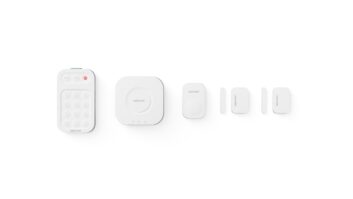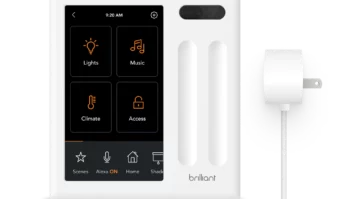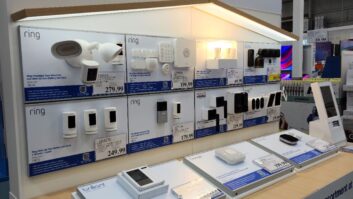Retailers won’t be able to buy home and portable audio devices that are Sirius- and XM-ready for some time under the terms of XM’s contracts with suppliers, audio marketers told TWICE.
Suppliers contend that Sirius’ growing subscriber base is pressuring them to offer Sirius products, but under their existing contracts with XM, they are barred from offering satellite-ready A/V receivers, HTiBs, compact systems or boomboxes that simultaneously incorporate XM’s Connect And Play technology and Sirius’ SiriusConnect Home technology. The contracts, however, don’t prohibit the XM-ready suppliers from offering a Sirius tuner, separate Sirius-ready products or XM-ready products with built-in Sirius tuners, suppliers said.
The prohibition’s duration is two years from the availability of a supplier’s first XM-ready product at retail. As a result, early 2007 is the soonest that home products with combined Sirius- and XM-ready technology could be available at retail. The first XM- and Sirius-ready boomboxes won’t appear until September 2007 at the earliest.
Under both the SiriusConnect Home and XM Connect and Play programs, traditional home and portable products are equipped with digital inputs and software to control a standardized palm-size antenna/tuner combination retailing for a suggested $49. The manufacturer’s cost to make a product XM-ready was estimated by one supplier last year to range between $4 and $9. The cost of adding Sirius-ready technology was unavailable but likely to be similar.
Meantime, multiple car audio suppliers are beginning to offer satellite-ready head units promoted by them as controlling either an outboard Sirius tuner or outboard XM tuner. Alpine launched such head units in 2005, and this year the company will be joined by Clarion, JVC and Panasonic. Adapters are available for other XM-ready or Sirius-ready head units to make them compatible with the competing service.
“If you look at how quickly Sirius is gaining market share,” one home audio supplier said, “the logical next step is for us to offer Sirius, [but] we want to let the customer make the ultimate decision [on which service to use].”
By the end of 2005, Sirius had 3.3 million subscribers compared to XM’s 6 million, but in the fourth quarter, Sirius’s new subscriber additions exceeded XM’s for the first time, with 1.4 million compared to XM’s 900,000. For the year, Sirius’s net new subscribers hit 2.17 million, closing in on XM’s 2.7 million.
Sirius declined to comment on “specific relationship issues,” said Bob Law, senior VP/GM of Sirius’s consumer electronics division, but he added, “With the market share we’ve gained, and with our relationships with key retailers, the brands are smart enough to try not to exclude us.”
For its part, said an XM spokesman, “XM doesn’t disclose the terms of its deals with partners.”
One supplier noted, however, that every Sirius or XM contract “has exclusivity clauses to varying degrees” because satellite-radio chipsets are subsidized by both providers.
The first Sirius-ready home products are planned by Eton and Thomson for later this year. Thomson will market a trio of products under the RCA and GE brands.
The first XM-ready home products appeared in early 2005 from Yamaha and Eton. Denon soon followed, and later in 2005, Integra, Onkyo and Pioneer Elite shipped their first models.
None of these companies market boomboxes, so the earliest that a Sirius- and XM-ready boombox could appear is late 2007, two years after GPX shipped the industry’s first XM boombox last September.
Other companies planning to launch their first XM-ready home devices in 2006 include Audiovox, Crosley, Harman Kardon, LG, Samsung and Sherwood in products ranging from A/V receivers to table radios, HTiBs and stereo shelf systems. Audiovox’s products will include three one-piece table radios, a boombox and a microsystem.
During XM’s contract period, home audio suppliers wanting to offer Sirius service are presented with what contend are less-than-optimum choices: One is offering the same product as two separate SKUs, raising the products’ costs and forcing retailers to stock additional SKUs. The second is to offer an XM-ready product with built-in Sirius tuner, further raising the suppliers’ costs. Said one supplier, “The cost of adding a full-blown Sirius tuner in an XM-ready product is cost-prohibitive for us given the fact that the model has to have wide appeal, and consumer pricing is critical.”
A third option is to offer a component-style Sirius tuner that would be more costly than an antenna/tuner combination. Many suppliers, however, prefer not to offer a dedicated Sirius tuner or internal tuner, one marketer added, because “consumers really want a movable subscription solution” so they won’t “limit their subscription to just the home.” Both service providers, the marketer said, “are going in a direction where it’s easier to move your subscription easily from one device to another.”
The marketer specifically cited XM’s new Passport module, a 9-volt-battery-size tuner that plugs into a docking station and eventually will plug directly into audio products, including car head units.
According to two suppliers, XM confirmed that it can’t develop products incorporating technology similar to XM’s Connect and Play technology for two years to prevent the technology from turning up in Sirius products. XM also confirmed to its home audio partners that it’s not trying to stop them from building Sirius tuners into XM-ready devices or from building their own dedicated Sirius tuners. — Additional reporting by Amy Gilroy













